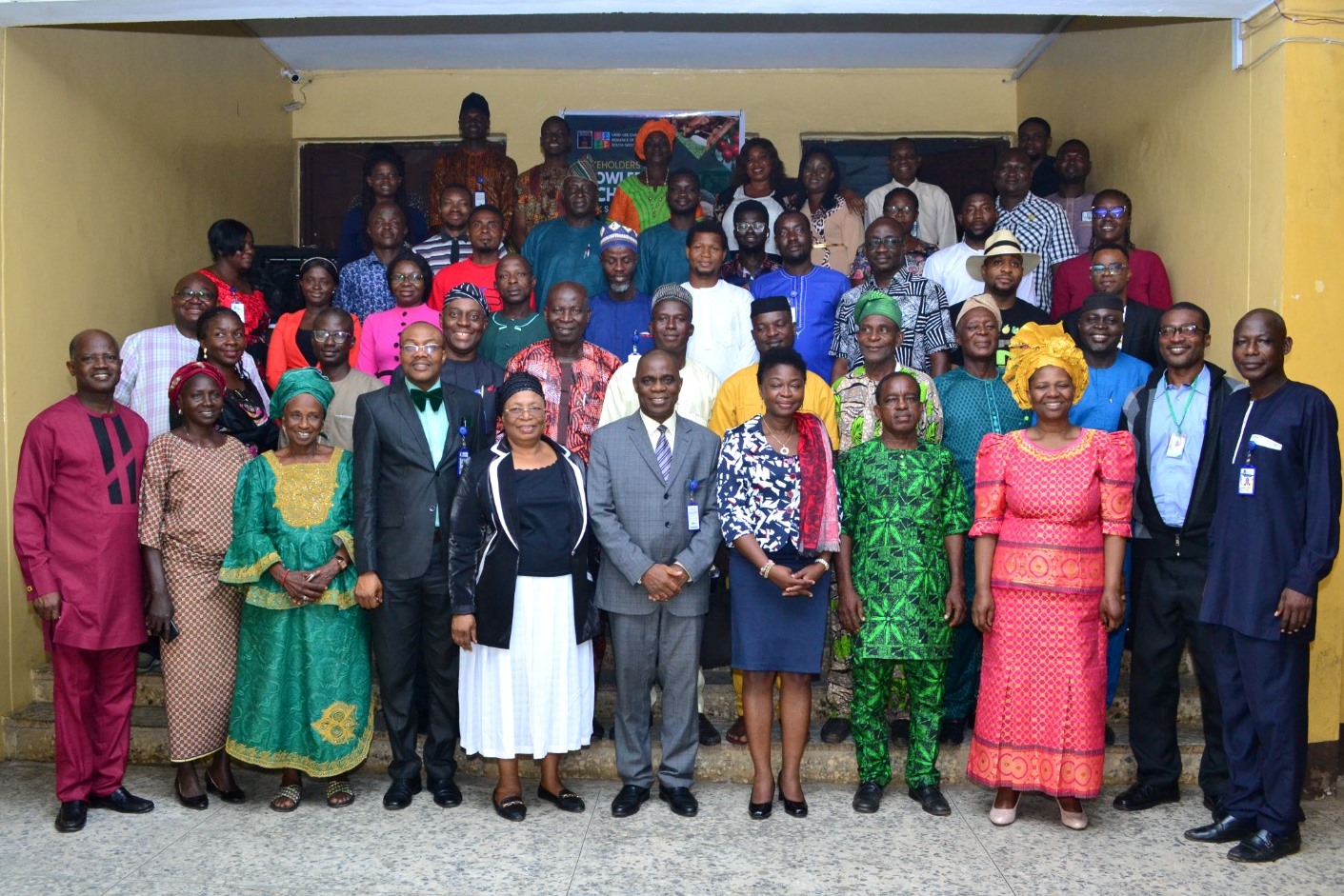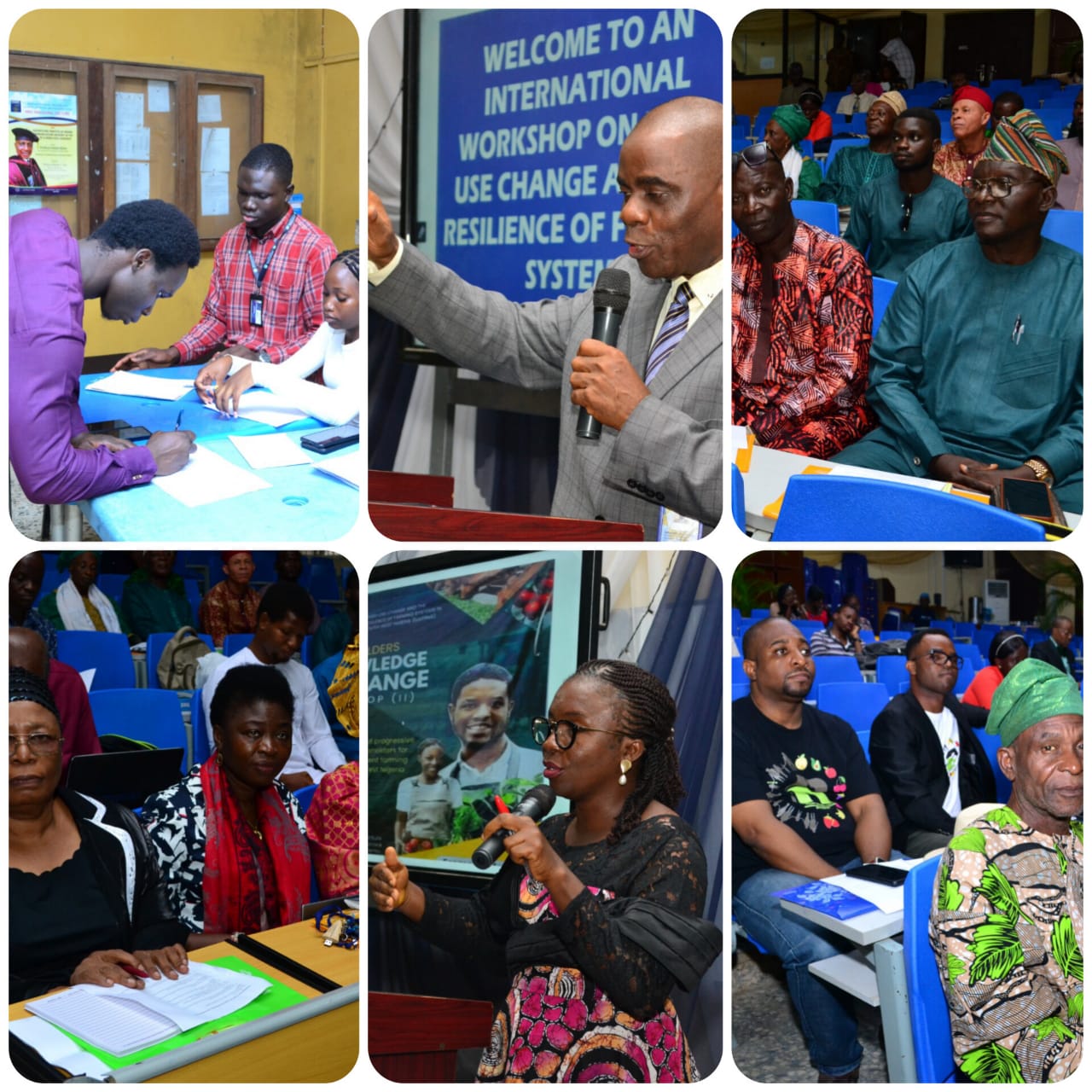| Communication

The participants (stakeholders and farmers) from far and near gathered to discuss the impact of land use change on farming systems and the strategies for building resilience to the farming sub-sector in the face of emerging challenges.

Key takeaways:
The workshop sought to enlighten the participants on sustainable land resource management, poverty alleviation and food security, climate change adaptation and mitigation, and lastly, hunger reduction through improved food production.
The changing climate, population growth, urbanization, and other factors have led to significant shifts in land use patterns, posing debilitating threats to our farming systems and food security. These factors are in one way or the other impacting on land use, resulting in the loss of arable land, soil degradation, and decreased crop yields. While it is an established fact that land use changes are constant, continuous, cumulative, consequential and contributory, the workshop grouped the challenges of farming systems under four broad headings, which are: Institutional, Sociological, Economical and Environmental. Aggressive and balanced research that is forward-looking and goal-oriented was however identified as the way out of the doldrums.
The workshop also posited that building resilience in farming systems would require a multi-faceted approach that will sustainably maintain the natural resources base, reduce its vulnerability to climate shocks, and ensure reliable farmer’s income from farming to cushion stresses and disturbances.
A system can be resilient but the much needed ecosystem services, especially crop productivity may be insufficient. Land use change and the resilience of farming systems in Southwest Nigeria and the nation by extension remains a topical issue. Building resilience in farming systems therefore requires:
- Sustainable land management practices
- Crop diversification and agroforestry
- Climate-smart agriculture
- Support for smallholder farmers to implement policies in ways that build resilience
- Policy and regulatory frameworks that prioritize sustainable land use
- Policies and actual government practices that support land users in adopting practices that enhance resilience of food production systems
Recommendations:
- Governments and policymakers should prioritize the formulation of appropriate land reforms that will guarantee sustainable- land use/management and agriculture.
- International organizations and development partners should provide support for smallholder farmers and sustainable agriculture initiatives.
- Researchers and academics should continue to study and develop strategies for building resilience in farming systems.
- Farmers and agricultural communities should adopt sustainable land management practices and climate-resilient agriculture.
- Formulate policy or programme that will keep farmers permanently on their farms, that is, Farm Gate Marketing